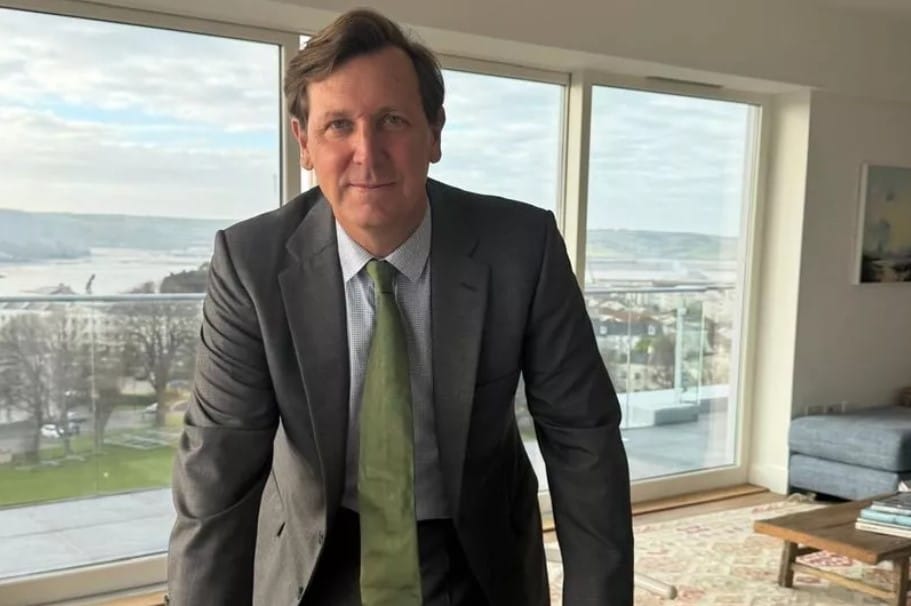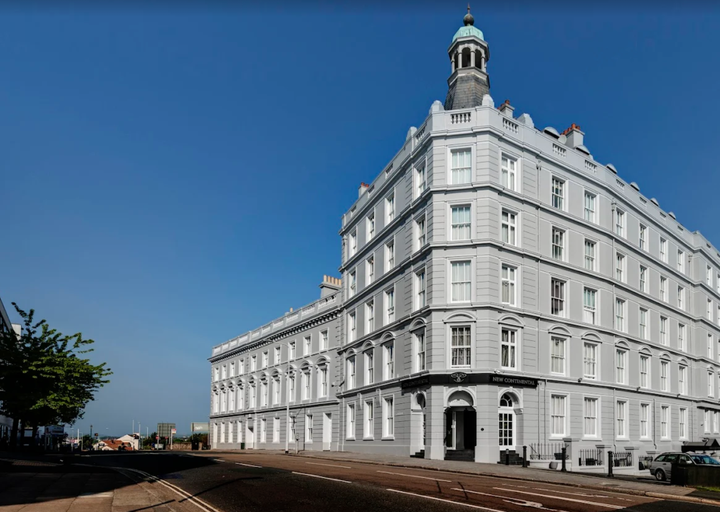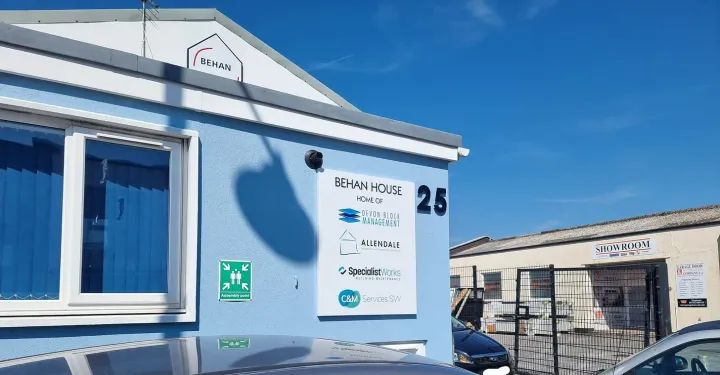Meeting the mayor maker? The Beagle sits down with Angus Forbes to hear why he is leading the campaign for democratic change in Plymouth

He’s a former City banker, environmental campaigner, published author, and – he hopes – the reason Plymouth politics gets a dramatic makeover.
Angus Forbes is the cheerleader and organiser of the campaign for Plymouth to become the next city or region of England to have an elected mayor.
He’s recently gone full throttle with a string of public meetings, media interviews and opinion pieces calling for the Ocean City to grab the reins of its future.
And it's sparked a debate that's more lively than a Saturday night on the Barbican.
Just in case the name rings a bell, yes, Angus is married to ballerina royalty Darcey Bussell. The pair lead a life split between London and Plymouth (she’s chairman of the board of trustees at Theatre Royal Plymouth), and it’s clear Forbes has developed strong views on Plymouth’s potential – and its problems.
A former global head of strategy at investment giant GLG Partners, he pivoted away from finance to focus on environmental activism. He’s the author of “Global Planet Authority”, a manifesto arguing for a supranational body to protect the Earth’s biosphere. So, yes, when he says Plymouth needs bold leadership, he’s not thinking small.
His big local idea? Ditch the system that allows the ruling political party to choose a leader for the city and let the people elect a mayor - someone the whole city can vote for, hold accountable, and expect to actually get things done.
He argues that a single, directly accountable figure could cut through red tape, attract investment, and champion Plymouth on a national stage. Essentially, he believes that a mayor could act as a single point of failure, or a single point of success, depending on your perspective.
Forbes has already won one battle: the city council has been forced to hold a referendum on the issue after more than 10,000 people in the city signed a petition calling for the poll.
On July 17 residents can go to polling stations to answer the question: “How would you like Plymouth City Council to be run?”

Forbes argues forcibly that Plymouth Council’s lack of coherent leadership is holding it back.
“The city has extraordinary assets but they are under-leveraged. With an elected mayor, we can take real steps to attract investment, improve infrastructure, and lift ambitions.”
He’s not wrong about the challenges here. Plymouth’s economy has long lagged behind the national average, with productivity, wages and private sector growth all sluggish. The post-Covid bounce has been uneven, and younger residents in particular are feeling the pinch.
Forbes’ argument is that without someone who can make bold, city-wide decisions, not just wrangle party politics in the council chamber, Plymouth will remain stuck in second gear.
“An elected mayor brings four benefits: Democracy, Accountability, Talent and Economic growth. That’s DATE. We can go to this system. And it will work,” he said.
In our chat Forbes twice mentions re-opening Plymouth Airport, and also nods to the former Quality Inn hotel site on the Hoe, and talk of a catamaran service from Cattedown to Cherbourg in France. He seems confident an elected mayor would help win all three of these battles.
“The current system is over-politicised. And we are only talking about one job. But our city is in trouble, and this is an extraordinary opportunity. That problem is the leadership structure which is holding Plymouth back.”
So does he know who might step up for election, assuming the referendum decides on an elected mayor?
“I’ve heard whispers. I’ve met quality leaders of people in this city. People will step up. I’m the catalyst for change, but if we win the referendum, let the people of Plymouth come forward and let the people of Plymouth decide.”
Direct democracy in England is relatively new, with Londoner Ken Livingstone the first directly elected in London in 1999, and now there are 27 more in cities and regions across the nation.
So why does Angus care that Plymouth gets the next elected mayor?
“It’s about place and time. I’m 59. I care because my lived experience says that 78,000 people do not have to be in poverty in Plymouth.
“Our greatest opportunity is to have a leader elected by the people to galvanise us, unify us, attract private capital and private citizens to arguably the best piece of real estate for lifestyle in Britain.
“Of the 38 million employed people in Britain, 14 million are now remote and hybrid, so we can attract, essentially, a Duracell battery of new citizens that can help lift people out of out of poverty. And when you feel that very deeply and have lived that or have seen it and know it can happen, well I have to act. I have to.
“It would be immoral to walk past the opportunity and not stop and try and take it,” he said.
Whether Plymothians are in the mood for a mayor remains to be seen. (Forbes, incidentally, has publicly declared he doesn’t want the job.) But one thing’s for sure: the ballerina’s husband has grabbed the political spotlight and turned it squarely on the city council.




Comments ()